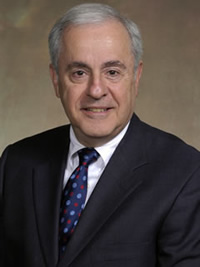The United States Court of Appeals for the Seventh Circuit has handed down an opinion in Wiesmueller v. Kosobucki, No. 08-2527, a class action challenging—under the federal Constitution’s “dormant commerce clause”—the diploma privilege. The diploma privilege, of course, is the Wisconsin Supreme Court rule that permits law graduates of Marquette University and the University of Wisconsin to be admitted to the practice of law in Wisconsin (without, for example, having to take a bar exam). The Seventh Circuit reversed the district court’s dismissal of the case, not because it concluded that the diploma privilege is unconstitutional but because the plaintiffs should have an opportunity to submit evidence on the matter. The court stated that “Marquette and Madison are law schools of national stature, and we can hardly infer without any evidence that they concentrate on educating their students in the law of the state that these law schools happen to be located in . . . .” Slip op. at 11. So it remanded (stressing that “[w]e intimate no view on the ultimate outcome”). Id. at 15.
The court said much else of note. This includes that the diploma privilege “has only indirect effects on interstate commerce and regulates evenhandedly” and that “the regulation must be at least minimally reasonable.” Id. at 8 (internal quotation marks omitted). On the latter point, the court noted as follows: “We emphasize ‘minimally.’ The judiciary lacks the time and the knowledge to be able to strike a fine balance between the burden that a particular state regulation lays on interstate commerce and the benefit of that regulation to the state’s legitimate interests.” Id. (I cannot resist adding that the court allowed that “[t]he two law schools in Wisconsin are very fine law schools, doubtless among the nation’s best . . . .“ Id. at 13-14.) The problem, according to the court, is that “we find ourselves in an evidentiary vacuum created by the early termination of the case by the grant of a motion to dismiss.” Id. at 8-9.
While Marquette is not a party to this case (the defendants are the members of the Wisconsin Supreme Court and its Board of Bar Examiners), I expect that on remand (and any subsequent appeal) the diploma privilege will pass constitutional muster. This is the beginning of my seventh year as dean and thirteenth as a member of the faculty at Marquette; throughout this time Marquette Law School has sought to ensure—because of the diploma privilege—that our students are especially introduced to the law and legal profession of Wisconsin. Certainly I expect that it is not the case (to quote a “supposition” posed by the Seventh Circuit) “that Wisconsin law is no greater part of the curriculum of the Marquette and Madison law schools than it is of the law schools of Harvard, Yale, Columbia, Virginia, the University of Texas, Notre Dame, the University of Chicago, the University of Oklahoma, and the University of Northern Illinois.” Id. at 9. Indeed, I know it not to be the case at Marquette, and I expect that a similar thing is true at the University of Wisconsin. To be sure, it will take a while to demonstrate all this through the litigation system, but Marquette will provide the Attorney General’s office any support that it requires in marshaling evidence.
 I’ve been enjoying a new blog written by Dean Bill Henk of Marquette’s College of Education. Among other things, “Marquette Educator” has been covering the lively ongoing debates over the future of Milwaukee Public Schools, including the recent push to transfer control over the school district to the Mayor. As our own Dean Kearney recently observed in this Blog, the Law School is also trying to play a constructive role in the public conversation over the future of MPS, for instance, through the recent appointment of Michael J. Spector as Boden Visiting Professor of Law. Dean Henk has been part of this public conversation for some time, and I look forward to reading his on-line reactions to new developments over the coming months, which may be a period of dramatic change for the school district.
I’ve been enjoying a new blog written by Dean Bill Henk of Marquette’s College of Education. Among other things, “Marquette Educator” has been covering the lively ongoing debates over the future of Milwaukee Public Schools, including the recent push to transfer control over the school district to the Mayor. As our own Dean Kearney recently observed in this Blog, the Law School is also trying to play a constructive role in the public conversation over the future of MPS, for instance, through the recent appointment of Michael J. Spector as Boden Visiting Professor of Law. Dean Henk has been part of this public conversation for some time, and I look forward to reading his on-line reactions to new developments over the coming months, which may be a period of dramatic change for the school district.
 The Law School began its fall semester today, having welcomed through orientation the past two days both full-time (185) and part-time (34) students embarking upon their legal education. We welcomed—and welcome—as well a handful of transfer students. My beginning-of-semester letter to the community, with some information, I believe, of general interest about the Law School, is
The Law School began its fall semester today, having welcomed through orientation the past two days both full-time (185) and part-time (34) students embarking upon their legal education. We welcomed—and welcome—as well a handful of transfer students. My beginning-of-semester letter to the community, with some information, I believe, of general interest about the Law School, is